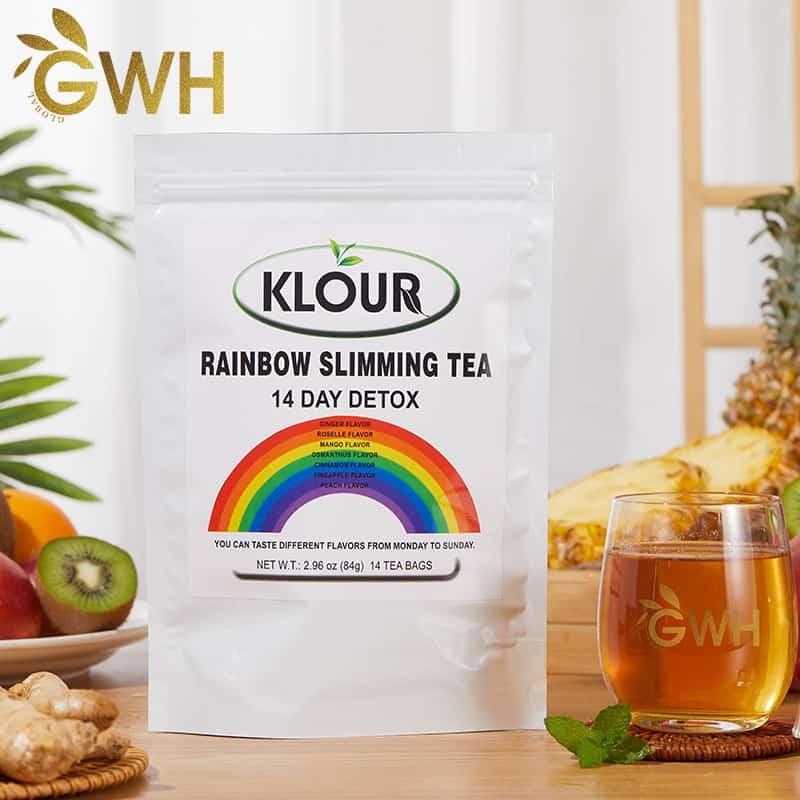Detox teas have experienced a surge in popularity as a touted remedy for weight loss and holistic well-being. These herbal blends, often advertised as natural and invigorating, promise to eliminate toxins and stimulate fat burning, attracting individuals in search of quick solutions. However, amidst the fervor, doubts persist regarding their actual effectiveness. This essay delves into the truth behind detox teas, examining their claimed benefits in contrast to scientific findings. Through an analysis of their ingredients, potential health risks, and outcomes, we seek to illuminate whether detox teas genuinely fulfill their weight-loss promises.
Understanding Detox Teas
Ingredients in Detox Teas
Detox teas typically consist of a blend of herbs and botanicals renowned for their purported cleansing properties. Common components include green tea, dandelion, ginger, turmeric, and assorted fruit extracts. These ingredients are combined to create a beverage believed to facilitate detoxification and weight loss.
Alleged Benefits of Detox Teas
Advocates of detox teas promote various advantages, including increased metabolism, improved digestion, heightened energy levels, and notably, weight loss. Manufacturers market these teas as a gentle, natural method to detoxify the body, enhance overall wellness, and achieve a slimmer physique.
Potential Risks and Side Effects
Despite their popularity, detox teas carry potential hazards and adverse effects. Certain ingredients, such as senna leaf and cascara sagrada, act as natural laxatives, which can lead to digestive discomfort, dehydration, and electrolyte imbalances if consumed excessively. Furthermore, detox teas may interact with medications or exacerbate underlying health conditions, emphasizing the importance of cautious consumption.
Mechanisms of Weight Loss with Detox Teas
Diuretic Effects and Water Weight Loss
Many detox teas possess diuretic properties that promote increased urine production, resulting in temporary water weight reduction. While this may produce a brief slimming effect on the scale, it does not necessarily equate to fat loss or sustainable weight management.
Stimulant Effects on Metabolism
Certain detox teas contain stimulants like caffeine, which can temporarily elevate metabolism and energy expenditure. However, relying on stimulants for prolonged weight control may compromise overall health and prove unsustainable in the long term.
Appetite Suppression
Specific ingredients within detox teas, such as green tea extract, are believed to suppress appetite and reduce calorie intake. While this may support weight loss efforts, it is essential to consider their impact on overall nutrient intake and dietary balance.

Scientific Evidence on Detox Teas and Weight Loss
Supporting Studies on Weight Loss Claims
Certain studies suggest that specific ingredients within detox teas, such as green tea catechins and caffeine, may impart modest weight loss benefits when coupled with calorie restriction and regular physical activity. Nevertheless, the magnitude of these effects fluctuates, necessitating further robust investigation to corroborate their efficacy.
Refuting Studies on Weight Loss Claims
Conversely, other research contests the weight loss assertions affiliated with detox teas, citing methodological disparities, limited sample sizes, and publication biases. Many investigations fail to evidence significant disparities in weight loss between individuals consuming detox teas and those abstaining, hinting at potentially negligible or ephemeral effects.
Long-term Studies and Potential Biases
The dearth of extended-duration studies constitutes a notable obstacle in evaluating the efficacy of detox teas for weight loss. Most research predominantly focuses on short-term outcomes, impeding the determination of sustained weight loss benefits. Furthermore, the sway of industry-sponsored research and marketing predispositions warrants critical scrutiny when deciphering the scientific validity surrounding detox teas.
Evaluating the Scientific Basis of Detox Teas for Weight Loss
Supporting Evidence for Weight Loss Claims
Certain studies indicate that ingredients like green tea catechins and caffeine, prevalent in detox teas, might facilitate modest weight loss when coupled with calorie restriction and regular exercise. These investigations often highlight enhancements in metabolic rate and fat oxidation, although efficacy levels vary.
Challenges to Weight Loss Claims
Conversely, some research contests the weight loss assertions linked with detox teas, citing methodological discrepancies, small sample sizes, and publication biases. Numerous studies fail to illustrate significant differences in weight loss between detox tea users and non-users, suggesting potential minimal or short-lived effects.
Limitations in Long-term Studies and Bias Recognition
The absence of comprehensive, long-term studies poses a significant hurdle in assessing the enduring efficacy of detox teas for weight loss. With most research focusing on short-term outcomes, it’s challenging to gauge the sustainability of any purported benefits over time. Moreover, the influence of industry-funded research and marketing biases necessitates critical scrutiny.
Additional Contributors to Weight Loss
Caloric Balance Management
Regardless of detox tea consumption, achieving a caloric deficit remains pivotal for weight loss. Monitoring calorie intake and ensuring expenditure surpasses consumption are fundamental principles for shedding excess weight effectively.
Role of Physical Activity
Regular exercise is integral to weight management and overall well-being. Physical activity not only burns calories but also fosters lean muscle mass development, amplifying metabolism and facilitating fat loss. Incorporating diverse exercises like cardio, strength training, and flexibility routines is key for sustainable weight loss.
Importance of Dietary Patterns
Beyond individual products like detox teas, dietary habits significantly influence weight management. Prioritizing whole, nutrient-rich foods such as fruits, vegetables, lean proteins, and whole grains supports satiety, metabolism, and overall health. Adopting a balanced, sustainable dietary approach is crucial for lasting weight loss success.
GWH: Nurturing Nature’s Bounty
Certified Organic Commitment
GWH stands as a bastion of purity, adhering rigorously to organic standards that eschew synthetic contaminants. Since its inception in 2014, GWH has championed a health culture rooted in millennia-old wisdom, harnessing the potency of natural herbs for bodily regulation. This dedication echoes through every product, a testament to GWH’s unwavering mission to deliver pristine detox teas of unparalleled quality.
Crafted with Intention
Within GWH’s sanctum, each batch of detox teas undergoes a meticulous alchemy guided by a seasoned herbal maestro. With over two decades of expertise, this maestro infuses every blend with not just quality, but purpose. Whether the goal is shedding pounds, enhancing allure, or nurturing internal vitality, GWH’s teas are imbued with the essence of healing, a testament to their artisanal pedigree.
Sustainable Harmony
Beyond mere craftsmanship, GWH champions environmental stewardship with unwavering resolve. Their Climate Neutral certification speaks volumes of a commitment to balance: measuring, offsetting, and minimizing carbon footprints. From the rustic charm of a traditional Chinese herbs workshop to the cutting-edge efficiency of extraction facilities, eco-conscious practices resonate, ensuring harmony between nature’s bounty and human needs.
Parting Thoughts
In the grand tapestry of wellness, detox teas beckon as swift allies, promising expedited paths to weight loss and vitality. Yet, amidst the allure, caution flags unfurl, signaling a terrain fraught with uncertainties. Dehydration, electrolyte imbalances, and gastrointestinal upheavals stand as sentinels, reminding us of the delicate balance between efficacy and risk. As we traverse this landscape, let us embrace a holistic ethos: one that cherishes balanced nutrition, embraces physical vigor, and exercises mindful restraint—a journey toward sustainable wellness unfettered by quick fixes.


